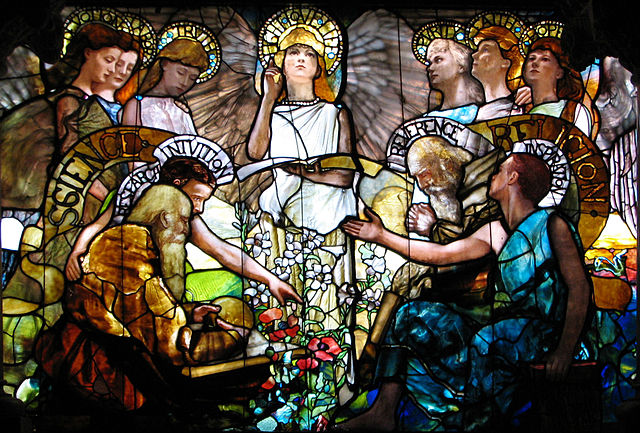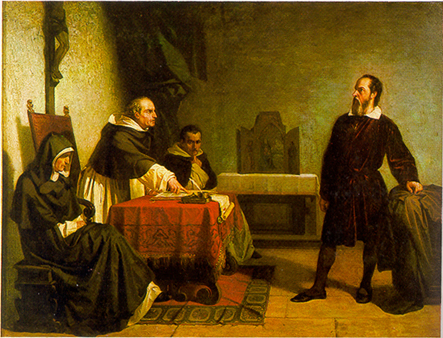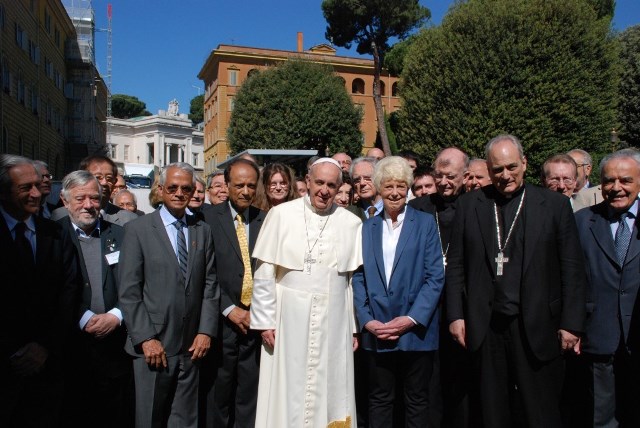GlobalPlus: Religion and science
Falling stereotypes open up paths to cooperation among science, religion

Light Love Life
A biologist in the United Kingdom takes a pay cut to allow a fellow researcher to stay on the staff.
A scientist in the United States says that his faith points him toward projects that could benefit underprivileged children.
And a scientist in India who just spent about a million dollars on a microscope thinks to herself, but if you walk out of [the door of my university] … and just go out at any of the crossroads you will see a bunch of kids with no clothes on their backs. … So you think immediately, you know, I just spent a million dollars, I better use it well, I better get something out of it which hopefully is useful for somebody in the future because that money could have been spent in other ways.
These are some of the voices of serious moral and ethical reflection throughout the world that I have listened to in two major research projects surveying more than 24,000 scientists, supplemented with nearly 900 in-depth interviews.
What I did not hear from a single scientist – whether religious or non-religious – was an admission they do anything but apply universally accepted scientific standards in the way they conduct their research.
The idea they would do different kinds of science is offensive to many religious scientists.
I’m a scientist at a well-respected university. Of course, I do science like anyone else
was their general response when asked.
Still, we live in an age when a presumed irrevocable gulf between science and religion is perpetuated in the public sphere (despite its inconsistency with what most scientists around the world actually think).
This is in part fueled by celebrity scientists such as Richard Dawkins, who capture disproportionate media attention for provocative denunciations of religion as an active and pernicious charlatan.
But new evidence is emerging that reveals a far more complex picture of the relationship between these powerful social forces.
My research team’s eight-region study of Religion among Scientists in International Context found a majority of scientists consider themselves either religious or spiritual, or both, in all regions except the United States, United Kingdom and France.
In India, more than half of all scientists pray every week or more, and in Turkey, two of every five scientists pray several times a day.
At the same time, many religious leaders have become significant allies of science in both opposing the teaching of creationism in public schools and becoming advocates for heeding scientific warnings on issues such as climate change.
In his recent encyclical on the environment, Pope Francis, the spiritual leader of 1.2 billion Catholics, urged action on moral grounds and in response to a very solid scientific consensus
on global warming.
Yet, there remains a high level of suspicion and distrust among many on both sides of the religion-science dialogue.
It is a distrust that if left unchecked could damage scientific advances in ways from endangering public funding of science to creating civil conflict in areas from public education to policy debates over genetic engineering and human embryonic stem cell research.
The increasing diversity produced by the globalization of science and the fact that younger generations of scientists are less beholden to old divisions are among the developments offering hope for a more productive relationship.
However, there is still a lot of work to be done to address long-held animosities.
On both sides.
Suspicion runs deep

Just how deeply entrenched some suspicions scientists have about religion can be observed in the fact one of the key incidents often cited in the controversy, the Catholic Church accusing the astronomer Galileo of heresy, goes back four centuries.
It does not matter that the Catechism of the Catholic Church places a high value on research carried out in a truly scientific manner.
Galileo remains a powerful symbol to many that religion and science shall never meet.
In the United Kingdom, just 12 percent of scientists described their understanding of religion and science as a relationship of collaboration. Thirty-five percent said the relationship was one of conflict.
One factor that may feed these assumptions is a lack of social ties
In many Western countries, science is not only still a boy’s club, but an intensely secular one.
More than half of scientists in France are atheists, a percentage more than two times higher than the general population. In the United Kingdom, about 40 percent of scientists, but just 14 percent of the population, believe there is no God.
In the United States, where just 4 percent of adults report being atheists, more than a third of scientists believe there is no God.
Evangelical Christians, the group most looked down upon by secular scientists, represent 27 percent of the U.S. population, but just 2 percent of its scientists at elite universities, according to the U.S.-based Religion among Academic Scientists study of scientists in 21 universities.
This skewed demographic not only greatly reduces diversity within the scientific communities, but encourages many scientists with a religious affiliation, particularly ones without tenure, to keep their faith in an academic closet, the study found.
The latest research reveals the fear of religion is now being extended toward the growing number of Muslim scientists immigrating to France and England.
One British scientist I interviewed said, Our Muslims here are like your evangelicals there.
Challenges to faith
When we turn our attention to religious individuals outside the scientific community, many have their own fears, including the concern that some scientific discoveries may endanger what they see as the propositional truths of their faith.
In the case of human origins, those who believe that each word of Scripture should be taken literally are particularly strong opponents of evolution.
To the consternation of the scientific community, anti-evolution groups motivated by religion have succeeded in mandating in some schools that creationism should be taught alongside evolution.
Neuroscience also makes many religious people nervous. In particular the idea that there is a God gene
that offers a biological explanation for religious faith.
Their own lack of contact with scientists also feeds the bias, particularly strong among religious conservatives, that scientists have their own agendas. These fears include that scientists are only concerned with what is technically possible, and dismiss the ethical implications of advances in areas such as genetic engineering.
This is particularly problematic for issues such as human embryonic stem cell research where many consider basic moral principles involving the right to life are at stake.
But neither the prejudices that all religious people are fundamentalists or that all scientists are utilitarian stands up to even a cursory review of the research.
Sifting through stereotypes
There is no one model of how science and religion relate to one another.
International research on how scientists view religion and religious people view science is helping us realize the complexity of the religion-science dialogue, and how it varies due to a variety of cultural, political and religious and secular influences in each nation.
In Hong Kong, where elite Christian schools are training groups for the academic elite and scientists convert to Christianity abroad during doctoral and postdoctoral training, scientists are more religious than the general population. In Turkey, tensions between religion and science play out against a larger political struggle over the role of faith in what was once a militantly secular nation.
In a highly religious nation such as India, some scientists show sensitivity to the beliefs of their staffs by allowing rituals such as the blessing of laboratory equipment.
But a few assumptions can be debunked, including the popular myth that science and atheism are mutually supportive of each other.
And we can reject the idea that the fears regarding religion and science are monolithic on either side.
For example, even evangelical Christians in the U.S. – a group often pitted against scientists– were more likely than the general population to see the religion-science relationship as one of collaboration. Nearly 50 percent of evangelicals, compared to 38 percent of respondents overall, said religion and science can each be used to help support the other, according to the Religious Understandings of Science survey of more than 10,000 respondents.
There are also significant numbers of scientists more open to dialogue.
In secular Britain, many scientists volunteered in interviews that they were tired of Dawkins, author of The God Delusion, being allowed to frame the debate on the relationship between religion and science.
Going around and saying,
to religious believers is hardly a reasoned approach, one scientist said.You’re all stupid
In our survey of U.S. scientists, a Unitarian-Universalist scientist said partisan voices are setting limits on understanding.
There’s just too much evidence of people being very thoughtful and creative working on both sides or working with both traditions of the inquiry,
the scientist said. It is much more productive to say that we should use all the tools that we have available, religious and scientific, to address these profound questions, not use that to drive wedges between us.
Hopeful signs

There are several hopeful signs.
For one, more research is being done on religion and science. A Network for the Social Scientific Study of Science and Religion was established in 2011.
And public attitudes are changing even in highly religious nations.
In the 2005 World Values survey, some seven in 10 respondents from India agreed with the statement, We depend too much on science and not enough on faith,
By 2014, just 41 percent held the same opinion.
In Turkey, less than half of respondents in 2014 cited too great a dependence on science, down from nearly two-thirds in 2005.
Researchers are also finding young adults inside and outside of science are more open to both fields.
In analyzing data from the National Study of Youth and Religion in the U.S., researchers said their findings suggest that increased religiousness among emerging adults is associated with a stronger agreement in science and religion’s compatibility, rather than conflict.
Some of the key leaders in the effort toward mutual respect are what I refer to as boundary pioneers, respected scientists who are willing to talk openly about how they reconcile their work and their faith.
They are people like National Institutes of Health Director Francis Collins, an evangelical Christian and physician-geneticist noted for his landmark discoveries of disease genes and his leadership of the international Human Genome Project.
These are not just philosophical discussions over abstract concepts. The stakes in the religion-science dialogue are significant.
Moving beyond hostility to a more respectful relationship can have several benefits, including:
- Creating a diverse body of scientists. An atmosphere of overt or subtle hostility toward religious students can both greatly limit the potential pool of candidates in the field, and eliminate individuals who could be valuable ambassadors for science to key social groups.
- Enriching public education. Working toward consensus can both help produce curriculums based on the latest scientific knowledge, and open up classroom conversations on the ethical implications of technological advances.
- Promoting government funding of science. The ability to secure public funding for science among many competing needs in democracies depends on widespread support.
- Fostering civil conversation on ethical concerns. This allows for reasoned public policy debates in areas such as genetic engineering balancing the value of such research with the potential moral consequences for vulnerable populations.
- Building coalitions to address issues such as global warming and climate change. In addition to public support from religious figures from the Dalai Lama to the pope, more than 70 religious environmental movement organizations have been founded since 1997 in the U.S. alone.
The flip side of engaging in dialogue is increasing conflict as many members of the scientific and religious communities retreat into their in-group cocoons fortified by prejudice and fear.
It is not going to be easy.
Progress in the religion-science dialogue may in large part rely on a virtue claimed by both sides that is too often missing in this and other public dialogues today.
Humility. More specifically, intellectual humility, the ability to be open to new ideas and to accurately assess the strengths and weaknesses of both one’s own self and others.
Still, the story yet to be told is not one of inevitable conflict between religion and science, but of new opportunities for both to be a source of light transcending the darkness of division to serve the public good.
Resources
- Association of Religion Data Archives: Search nearly 1,000 surveys and find citations for several hundred journal articles for comprehensive information on religion and science. ARDA’s Measurement Wizard allows quick comparisons of data on particular issues such as the relationship between religion and science and the teaching of evolution/creationism.
- ARDA National Profiles: View religious, demographic, socio-economic and public opinion data for all nations with populations of more than 2 million.
- Websites offering information about research and other developments in the religion-science dialogue include the American Association for the Advancement of Science’s Dialogue on Science, Ethics and Religion, European Society for the Study of Science and Theology, Faraday Institute for Science and Religion, International Society for Science and Religion and the Religion and Public Life Program at Rice University.
- A Global Lab: Religion among Scientists in International Context. Report shares findings from eight-region study on religious beliefs and practices of scientists, along with comparisons to the general population in each country.
Books
- Clayton, Philip, Ed., The Oxford Handbook of Religion and Science
The book provides a variety of perspectives on key issues in the religion-science dialogue. - Ed. Das, Pranab, Global Perspectives on Science and Spirituality
Gathering thinkers from ten countries and from a variety of scientific and spiritual backgrounds, the book explores non-Western approaches to topics in these two fields. - Ecklund, Elaine Howard, Science vs. Religion: What Scientists Really Think
The author explores unexamined assumptions about religion and science in a systematic study of what scientists actually think and feel about religion.
